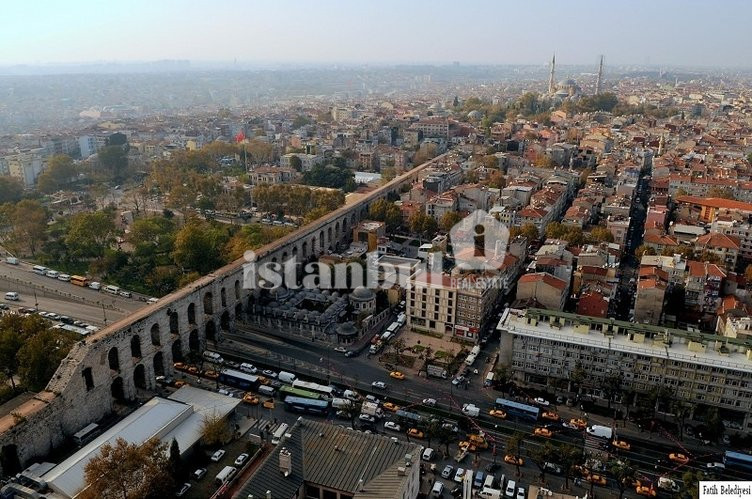
- 4 November 2023
Unlocking the Potential: Factors Driving the Growth of Istanbul’s Property Market
Unlocking the Potential: Factors Driving the Growth of Istanbul’s Property Market
Discover the evolving property market in Istanbul, where rising costs, strategic location, tourism growth, and attractive returns converge. While investment opportunities abound, geopolitical uncertainties and economic shifts add a layer of consideration. Explore the forces shaping Istanbul’s real estate market.
Istanbul’s Increasing Residential Costs: A Promising Investment Opportunity
Istanbul’s real estate prices are continuously increasing. Housing costs have increased as a result of the housing supply not keeping up with the rising demand in a number of ways.
The cost of residential real estate in Istanbul is expected to rise by an average of 11% between 2010 and 2020, according to the Central Bank of the Republic of Turkey. As a result, it is sensible to consider real estate investments early given the rising cost of real estate.
 Strategic Placement in the Globe for the Property Market
Strategic Placement in the Globe for the Property Market
Turkey has significant potential for real estate development because of its geographic position as a natural link between Europe and Asia. The demand for real estate has increased dramatically as a result of rapid urbanization, real estate development, and tourism. Projects and commercial real estate that are strategically located close to transit hubs and locations designated for future real estate development projects are very enticing. Investors understand the advantages of setting up shop in regions with the fastest real estate growth.
 Succeeding Tourism Sector
Succeeding Tourism Sector
Beyond its extensive historical legacy and gorgeous landscapes for its real estate market, Turkey appeals to investors for several reasons. Due to this attractiveness, Turkey has become a tourism hotspot, which has led to a boom in housing demand, particularly in locations with real estate and tourism potential. To take advantage of Tukey’s booming tourism industry, real estate investors have turned to coastal areas, historical sites, and locations ideal for hospitality projects as top targets. The mutually beneficial relationship between real estate investment and tourism continues to be a motivating factor.
 Property Market Trends in Dollar ROI from 2016 to 2021
Property Market Trends in Dollar ROI from 2016 to 2021
The Turkish real estate market underwent notable changes between 2016 and 2021. Variations are in the value of the lira relative to other major currencies, particularly the US dollar, had a big impact on how investments turned out.
Turkey’s real estate market proved its toughness in 2020 by luring $4.2 billion in foreign investment, a sign of the desirability of its products on a worldwide scale. Investments in real estate in particular played a key role in this increase. The returns on investments in dollars during this time were further amplified by the US dollar’s strength against the Turkish lira.
In terms of broad trends, property values in important cities like Istanbul, Antalya, and Izmir showed a steady market rise. For real estate investors, this expansion and currency fluctuations translated into enticing ROI potential. Over the past five years, real estate investments have prospered thanks to the convergence of currency benefits and real estate appreciation.
 The Link Between Continents and Commercial Real Estate Property Market
The Link Between Continents and Commercial Real Estate Property Market
Istanbul’s business real estate market has expanded significantly along with its residential real estate market. International organizations and corporations are drawn to the city because of its prime location as a point of intersection between Europe and Asia and are anxious to expand their presence there. Businesses are looking for commercial real estate in Istanbul as a result. Demand for office space and commercial retail is anticipated to increase as Istanbul develops into a center of trade and commerce.
According to data from the Central Bank of the Republic of Turkey, foreign direct investment (FDI) has been steadily increasing in Turkey. By 2020, Turkey had received nearly $22.1 billion more in foreign direct investment (FDI) than it had in 2010, which was roughly $9.1 billion.
 Consider the Relationship Between Geopolitical Unrest and Foreign Investments
Consider the Relationship Between Geopolitical Unrest and Foreign Investments
Despite the positive outlook, there may be certain concerns that have an impact on Istanbul’s real estate market in the future. Inflationary conditions in the local and global economies can affect the demand for and cost of housing. Geopolitical turmoil and tensions may have an effect on foreign investment flows. The Turkish lira’s volatility against major currencies may also have an influence on the purchasing power of overseas assets.
Conclusion:
In summary, Istanbul’s property market thrives on a blend of factors, offering promise amidst rising real estate costs, strategic positioning, and tourism growth. Yet, geopolitical uncertainties and economic shifts cast a watchful eye. Navigating this real estate market requires a nuanced understanding of these dynamics to harness Istanbul’s real estate potential effectively.
Related Posts

